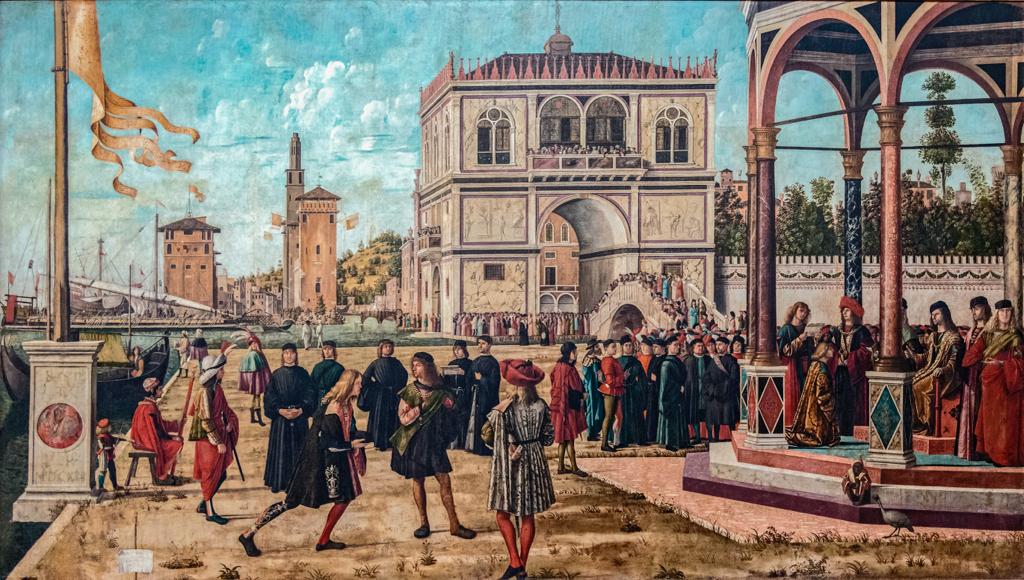27.04.2023, 10:30-Book presentation: Eleonora d’Aragona. Pratiche di potere e modelli culturali nell’Italia del Rinascimento di Valentina Prisco (Viella, Roma 2022)
27.04.2023, 10:30-Book presentation: Eleonora d’Aragona. Pratiche di potere e modelli culturali nell’Italia del Rinascimento di Valentina Prisco (Viella, Roma 2022)

Data inizio: 27/04/2023
Ora: 10:30-13:00
Laboratory activities
In person lecture: Room 13, second floor, building D3
Abstract The volume comprehensively deals with the political biography of Eleonora d'Aragona duchess of Ferrara (1450-1493), a crucial figure, but still neglected, of the political network of Italy in the second half of the fifteenth century: daughter of King Ferrante of Aragon and nephew of the Magnanimous; mother of Isabella d'Este and of the younger Beatrice, wife of Ludovico il Moro; sister of the Queen of Hungary, Beatrice. The Duchess, straddling Naples and Ferrara, thanks to a directing humanistic education and a clear awareness of her responsibilities - in a word of her political and dynastic identity - was a fundamental intermediary in those typical passages of fifteenth-century political culture: as a lady of Ferrara, as a wife, as a mother, as a daughter, that is to say in all the roles that her position in the Aragonese and Este dynastic network allowed her to exercise. We are faced with a particularly significant case of power-sharing in the context of the Italian principalities of the Renaissance.
Speaker
Coordinator Imma Petito University of Salerno, Vrije Universiteit Brussels
In person lecture: Room 13, second floor, building D3
 -Download the brochure
-Download the brochure
Abstract The volume comprehensively deals with the political biography of Eleonora d'Aragona duchess of Ferrara (1450-1493), a crucial figure, but still neglected, of the political network of Italy in the second half of the fifteenth century: daughter of King Ferrante of Aragon and nephew of the Magnanimous; mother of Isabella d'Este and of the younger Beatrice, wife of Ludovico il Moro; sister of the Queen of Hungary, Beatrice. The Duchess, straddling Naples and Ferrara, thanks to a directing humanistic education and a clear awareness of her responsibilities - in a word of her political and dynastic identity - was a fundamental intermediary in those typical passages of fifteenth-century political culture: as a lady of Ferrara, as a wife, as a mother, as a daughter, that is to say in all the roles that her position in the Aragonese and Este dynastic network allowed her to exercise. We are faced with a particularly significant case of power-sharing in the context of the Italian principalities of the Renaissance.
Speaker
- Amalia Galdi University of Salerno
- Maria Rosaria Pelizzari University of Salerno
- Valentina Prisco Italian Historical Institute for the Middle Ages, Rome
- Alessandro Silvestri University of Salerno
Coordinator Imma Petito University of Salerno, Vrije Universiteit Brussels